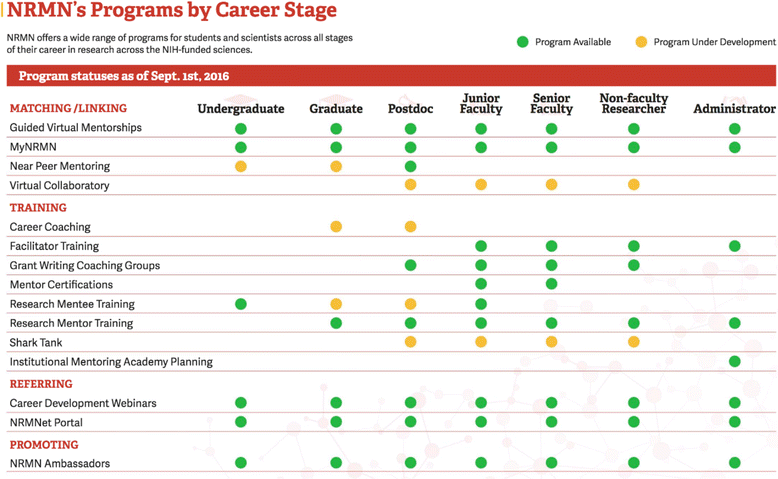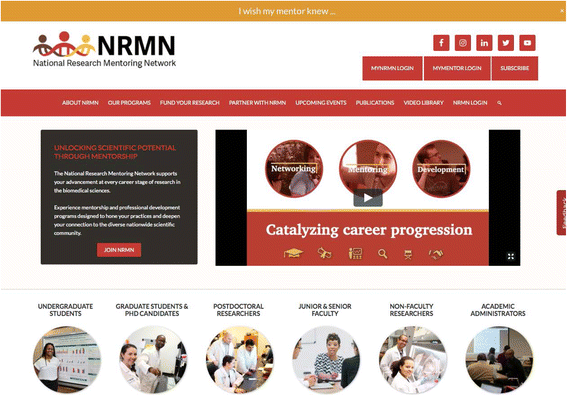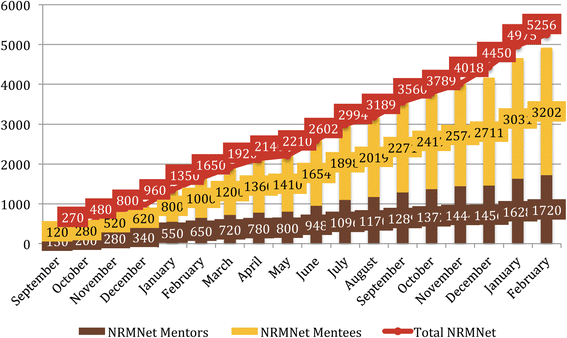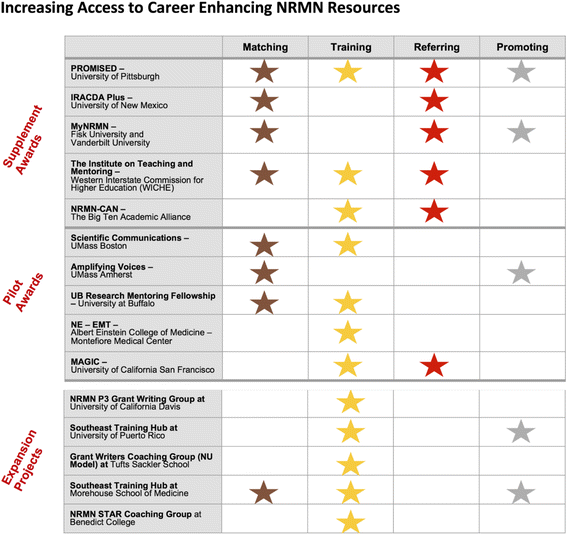A new approach to mentoring for research careers: the National Research Mentoring Network
- PMID: 29375663
- PMCID: PMC5773914
- DOI: 10.1186/s12919-017-0083-8
A new approach to mentoring for research careers: the National Research Mentoring Network
Abstract
Background and purpose: Effective mentorship is critical to the success of early stage investigators, and has been linked to enhanced mentee productivity, self-efficacy, and career satisfaction. The mission of the National Research Mentoring Network (NRMN) is to provide all trainees across the biomedical, behavioral, clinical, and social sciences with evidence-based mentorship and professional development programming that emphasizes the benefits and challenges of diversity, inclusivity, and culture within mentoring relationships, and more broadly the research workforce. The purpose of this paper is to describe the structure and activities of NRMN.
Key highlights: NRMN serves as a national training hub for mentors and mentees striving to improve their relationships by better aligning expectations, promoting professional development, maintaining effective communication, addressing equity and inclusion, assessing understanding, fostering independence, and cultivating ethical behavior. Training is offered in-person at institutions, regional training, or national meetings, as well as via synchronous and asynchronous platforms; the growing training demand is being met by a cadre of NRMN Master Facilitators. NRMN offers career stage-focused coaching models for grant writing, and other professional development programs. NRMN partners with diverse stakeholders from the NIH-sponsored Diversity Program Consortium (DPC), as well as organizations outside the DPC to work synergistically towards common diversity goals. NRMN offers a virtual portal to the Network and all NRMN program offerings for mentees and mentors across career development stages. NRMNet provides access to a wide array of mentoring experiences and resources including MyNRMN, Guided Virtual Mentorship Program, news, training calendar, videos, and workshops. National scale and sustainability are being addressed by NRMN "Coaches-in-Training" offerings for more senior researchers to implement coaching models across the nation. "Shark Tanks" provide intensive review and coaching for early career health disparities investigators, focusing on grant writing for graduate students, postdoctoral trainees, and junior faculty.
Implications: Partners from diverse perspectives are building the national capacity and sparking the institutional changes necessary to truly diversify and transform the biomedical research workforce. NRMN works to leverage resources towards the goals of sustainability, scalability, and expanded reach.
Conflict of interest statement
Not applicable.Not applicable.The authors declare that they have no competing interests.Springer Nature remains neutral with regard to jurisdictional claims in published maps and institutional affiliations.
Figures





References
-
- Bland CJ, Taylor AL, Shollen SL, Weber-Main AM, Mulcahy PA. Faculty success through mentoring: a guide for mentors, mentees, and leaders. Lanham: Rowman & Littlefield Publications; 2009.
Grants and funding
LinkOut - more resources
Full Text Sources
Other Literature Sources
Miscellaneous

